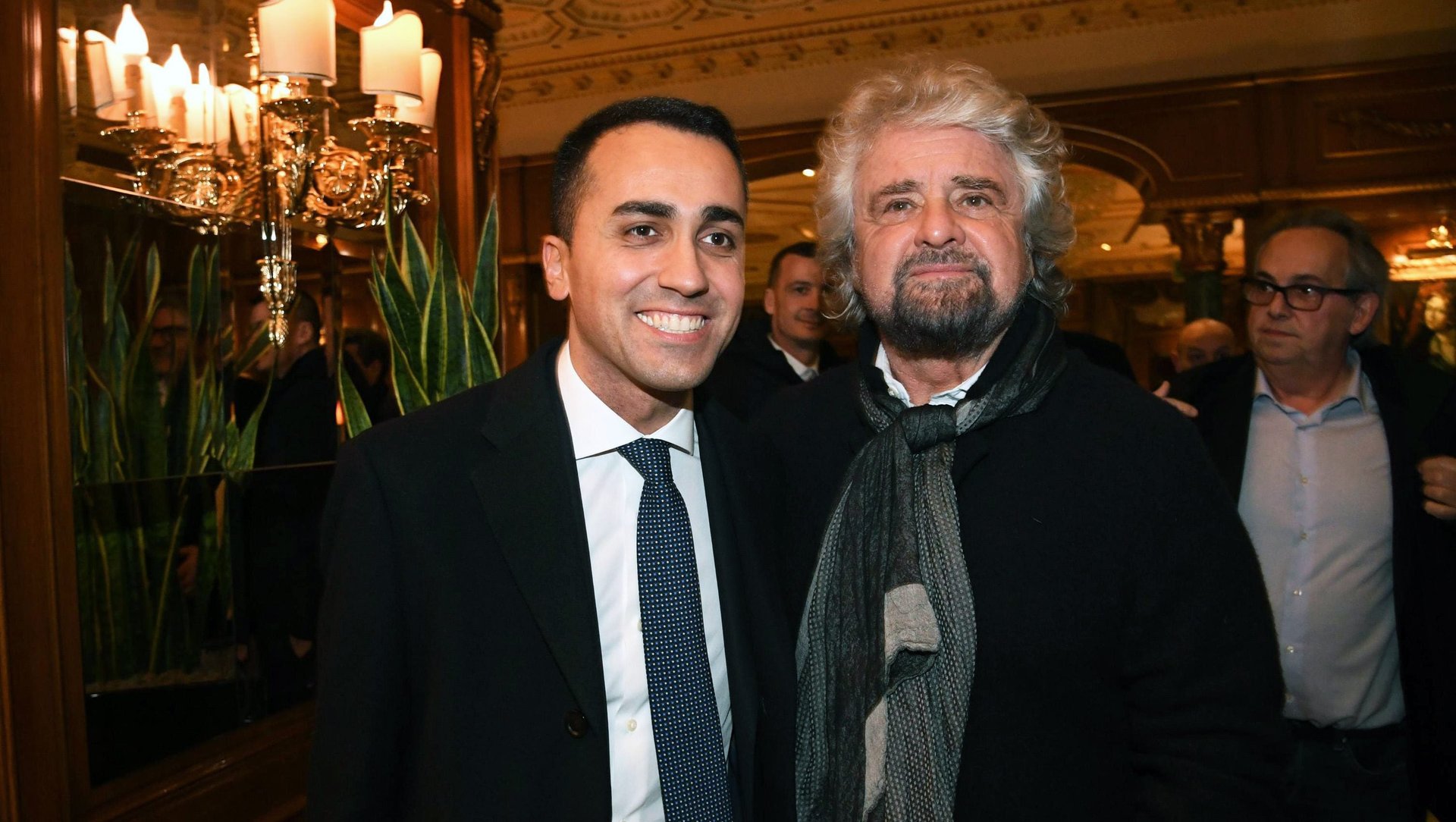Italy’s new populist government plans to give out free money—and tax cuts
It’s been two and a half months since Italy’s election when anti-establishment parties won 55% of the vote, but the country is still without a government. The two biggest parties, the Five Star Movement and League, which come from seemingly opposite ends of the populist spectrum, have been negotiating for weeks to form a new government. Today, they published a contract for their shared platform.


It’s been two and a half months since Italy’s election when anti-establishment parties won 55% of the vote, but the country is still without a government. The two biggest parties, the Five Star Movement and League, which come from seemingly opposite ends of the populist spectrum, have been negotiating for weeks to form a new government. Today, they published a contract for their shared platform.
In an effort to combine various campaign promises and ideologies, the contract makes a lot of expensive promises. However, it is short on ideas to pay for them.
The 58-page document (pdf in Italian) for the “Government of Change” includes a basic income for people deemed at risk of poverty of €780 per month. This “citizen’s income” for the poor is a flagship proposal of Five Star. It also includes a version of a flagship League policy on a flat tax for companies and individuals. There would be just two tax brackets at 15% and 20%. Some other taxes will be cancelled or reduced, and reforms that increased the retirement age will be scrapped.
If word counts tell us anything about priorities, consider that there are two pages dedicated to how to reform sports in Italy but just half a page vaguely dealing with what might happen to the budget deficit and public debt. EU rules stipulate that budget deficits not exceed 3% of GDP and government debt not exceed 60% of GDP. Last year, Italy’s budget deficit was 2.3% and debt was more than 130% of GDP.
This contract has removed some of the more controversial solutions to Italy’s debt that were leaked in drafts early this week. For example, there is no mention of creating a pathway to leave the eurozone, and no plan to get bonds purchased as part of the European Central Bank’s asset-buying program excluded from debt calculations, or possibly written off.
Now, the document claims that public debt will be reduced “not through revenue based on taxes and austerity policies that have not achieved their goal, but rather through increased GDP by the revival of internal demand.” It doesn’t immediately go on to give the precise details of how domestic demand will be increased and the contract’s spending boom doesn’t suggest that any increased economic growth, were it to materialize, would be sustainable.
The contract calls for the EU’s fiscal rules to be broadly revised, including having money spent on public investments not included in the budget deficit calculations. It also says the EU budget must be “reexamined with the goal of making it coherent with this government agreement,” suggesting that a bending of EU rules and more funds from the bloc will actually fund these proposals.
Even with some of the more startling policies excluded, traders are still worried about the new government’s attitude to public debt and what future policy might look like. The concerns helped send yields on Italy’s ten-year bonds to the highest level since October. The country’s stock market was also down.
Heavy spending plans and demands for EU fiscal changes are likely to lead to a clash with EU, if the Italian government doesn’t try to keep its deficit and debt in line. There will also be other sore points for the EU. The contract calls for closer relations with Russia by dropping sanctions and a heavy crackdown on immigration.
The deal still needs to be finalized and ratified by members and the president. Five Star members have been asked to vote on the proposals online today and League will ask its supporters to vote in piazzas over the weekend. If they get the support, they could take the document to the president as soon as Monday. The parties still need to pick who they would want to share as prime minister.